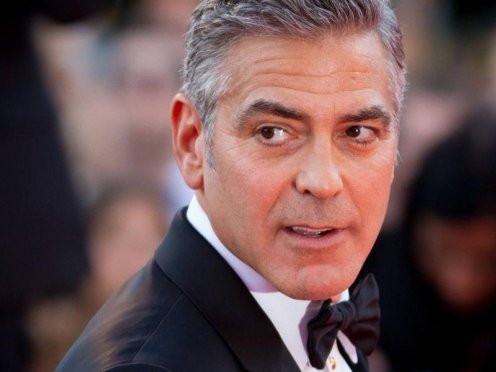"The Interview," starring Seth Rogen and James Franco, will go down in history not for its comedy, but for falling victim to a cyberterrorist attack that was led by North Korea, as confirmed by FBI officials.
After theater chains announced plans to drop the film's Christmas release one by one, Sony scrapped the movie altogether – including a potential DVD/Blu-Ray and VOD release – and this has elicited reactions ranging from frustration to rallying, fearful support.
As my colleague Matt Mueller wrote earlier today, the Sony hack – which initially started earlier this month with the breach and release of embarrassing emails and confidential documents – and the (hopefully temporary) demise of "The Interview" may serve as a blueprint for other hackers to attempt to shut down a movie, or perhaps any other media content from major studios, from being released to the American public.
A few familiar faces have already tweeted their disapproval over Sony's decision to back down, but it was George Clooney, Hollywood's graying fox, who actively reached out to many top players within the entertainment industry who "ran for the hills" when he, along with his agent Bryan Lourd, asked them to sign the petition he drafted in support of Sony.
Now, with hardly any signatures on the petition, Clooney spoke to Deadline in a recent interview to talk about Hollywood's lack of courage and the potential affects.
Here's the petition in its entirety:
"On November 24 of this year, Sony Pictures was notified that it was the victim of a cyber attack, the effects of which is the most chilling and devastating of any cyber attack in the history of our country. Personal information including Social Security numbers, email addresses, home addresses, phone numbers and the full texts of emails of tens of thousands of Sony employees was leaked online in an effort to scare and terrorize these workers. The hackers have made both demands and threats. The demand that Sony halt the release of its upcoming comedy The Interview, a satirical film about North Korean dictator Kim Jong Un. Their threats vary from personal—you better behave wisely—to threatening physical harm—not only you but your family is in danger.
"North Korea has not claimed credit for the attack but has praised the act, calling it a righteous deed and promising merciless measures if the film is released. Meanwhile the hackers insist in their statement that what they’ve done so far is only a small part of our further plan. This is not just an attack on Sony. It involves every studio, every network, every business and every individual in this country. That is why we fully support Sony’s decision not to submit to these hackers’ demands. We know that to give in to these criminals now will open the door for any group that would threaten freedom of expression, privacy and personal liberty. We hope these hackers are brought to justice but until they are, we will not stand in fear. We will stand together."
Clooney told Deadline, "All that it is basically saying is, we’re not going to give in to a ransom. As we watched one group be completely vilified, nobody stood up. Nobody took that stand.
"Having put together telethons where you have to get all the networks on board to do the telethon at the same time, the truth is once you get one or two, then everybody gets on board," Clooney later added. "It is a natural progression. So here, you get the first couple of people to sign it and … well, nobody wanted to be the first to sign on. Now, this isn’t finger-pointing on that. This is just where we are right now, how scared this industry has been made."
The "scared industry," as he puts it, is what he's most concerned about and rightfully so. I understand that some probably didn't want to associate with Sony because of the leaked emails. However, the industry's lack of standing up for creative expression will have an affect on the future of entertainment not only because of the potential of other hackers causing a similar conflict, but the industry's fear of producing content that may be "riskier" in the first place.
"I’m concerned that content now is constantly going to be judged on a different level. And that’s a terrible thing to do," he said. "What we don’t need happening in any of our industries is censorship."
In this case, it's quite clear that Clooney is voicing his support for our freedom to see "The Interview." Even though he isn't specifically supporting the movie itself because he referred the movie as "dumb," but it's important for Sony, and for us, to stand up so someday we can see it and enjoy the supposed silliness of it because that'll be the way to stick our middle finger high and proud to North Korean hackers and others who want to dictate what we can and cannot watch.
"This is a silly comedy, but the truth is, what it now says about us is a whole lot," he said. "We have a responsibility to stand up against this. That’s not just Sony, but all of us."
So what exactly is Clooney's solution in standing up to North Korean hackers?
"Stick it online," he said, also noting that Sony's co-chairman Amy Pascal also wants to release it. "Do whatever you can to get this movie out. Not because everybody has to see the movie, but because I’m not going to be told we can’t see the movie. That’s the most important part. We cannot be told we can’t see something by Kim Jong-un, of all f*cking people."
He makes a solid point. After all, it's our choice to watch the movie, no matter how "controversial" it's supposed to be. When we surrender our freedoms, especially something as seemingly small as watching a comedy, to appease a cruel dictator, then we don't really have much power at all, especially if an industry as large as Hollywood doesn't do anything about it.
As he said later in the interview, a hack as large and damaging as this could happen to any industry and not just entertainment.
"What happened here is part of a much larger deal. A huge deal. And people are still talking about dumb emails," he said. "Understand what is going on right now, because the world just changed on your watch, and you weren’t even paying attention."
Hopefully more people in the industry as powerful and influential as Clooney will follow his lead, but maybe we should wait before we get our hopes up too high just yet.
Colton Dunham's passion for movies began back as far as he can remember. Before he reached double digits in age, he stayed up on Saturday nights and watched numerous classic horror movies with his grandfather. Eventually, he branched out to other genres and the passion grew to what it is today.
Only this time, he's writing about his response to each movie he sees, whether it's a review for a website, or a short, 140-character review on Twitter. When he's not inside of a movie theater, at home binge watching a television show, or bragging that he's a published author, he's pursuing to keep movies a huge part of his life, whether it's as a journalist/critic or, ahem, a screenwriter.




